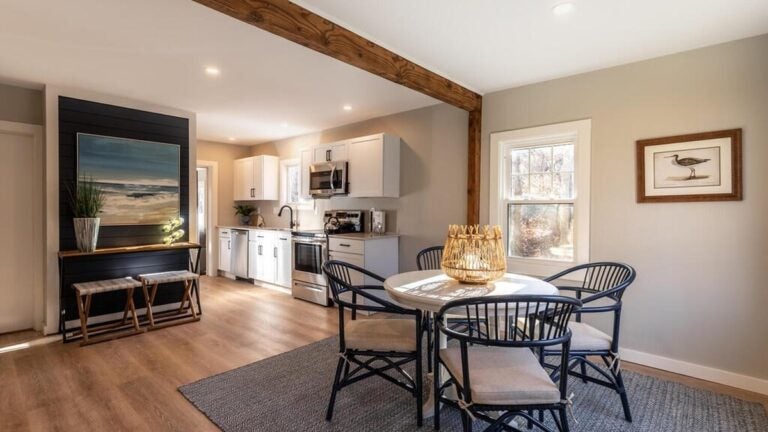Address newsletter
Get the latest news on buying, selling, renting, home design, and more.

Q. I have a built-in, direct-vent propane fireplace in my living room. The unit was installed nine years ago, and almost immediately, we experienced soot buildup on the glass screen and around the outside vent. We had the unit cleaned and inspected several times, and we were told that the seal around the door had failed. We also were told that propane burns “dirtier” than gas and that this could account for the soot. We replaced the door, but the problem continued to the point where there was noticeable soot buildup throughout the first level of our home. We filed an insurance claim and had the whole house cleaned and the downstairs repainted. It was very costly and didn’t cover replacing the fireplace. We have had no luck getting the initial installer to address this. We would like to get a new propane fireplace but are understandably concerned about going through all this again. We’ve gotten several estimates, and they say that it will cost roughly $8,000 to take apart the entire mantel and fireplace structure to remove the faulty unit and install a new one. I’m wondering whether all of that work is necessary. How often do direct-vent propane fireplaces have problems like this? If we decide to replace the unit, our insurance company will have an inspector on site to see whether there is an obvious problem or clog.
K.C.
A. This sounds very much like the fireplace has the wrong orifice feeding the propane into the fireplace. We actually had a problem like this once; there was a parts mix-up, and the orifice installed for a propane fireplace was actually one for natural gas. The two gases burn very differently, and we got smoking due to incomplete combustion of the propane. There are other things that could cause smoking, including having too big a log set in the firebox or the wrong medium inside, such as stones or rocks. Based on what you are describing, I would call a qualified installer and have that orifice checked.
Q. We have a house with two heat sources: forced hot air fired by an oil furnace that heats most of the house and forced hot water and a gas boiler that until recently handled the rest. (Don’t ask. It was this way when we bought it.) The high-efficiency gas boiler, which we bought with a Mass Save rebate and was presumably state of the art, died after about eight years, and no one has been able to fix it. We are making do, but we would like to consolidate to a single system. We don’t want to add more ducts for the forced hot air (installing radiators to make the house entirely forced hot water is clearly impractical). Were we to switch to a heat pump at some point, is it possible to have a system provide both hot water for the radiator system and forced hot air?
A.C., Dedham
A. I’m not sure exactly what year the boiler was installed, but it is not uncommon for an earlier generation high-efficiency boiler to last about 10 years. A lot of them had aluminum heat exchangers, but the ones we install nowadays have stainless steel ones. If you were to install a new one with a stainless steel heat exchanger, you should have it serviced regularly to extend its life. That would be the most cost-effective solution.
Regarding a system that can combine the forced hot air and hydronic heat that you have, that is a bit dicey. One of our heating, ventilation, and air-conditioning companies told me that those systems exist but that none of the major manufacturers sells them because it is such a small market. There are hydro-air systems that use hot water to heat the air, but one that also has a separate zone for a hydronic system is harder to find. You’ll likely have to turn to an off-market manufacturer.
Mark Philben is the project development manager at Charlie Allen Renovations in Cambridge. Send your questions to [email protected]. Questions are subject to editing.
Get the latest news on buying, selling, renting, home design, and more.

Stay up to date with everything Boston. Receive the latest news and breaking updates, straight from our newsroom to your inbox.
Conversation
This discussion has ended. Please join elsewhere on Boston.com